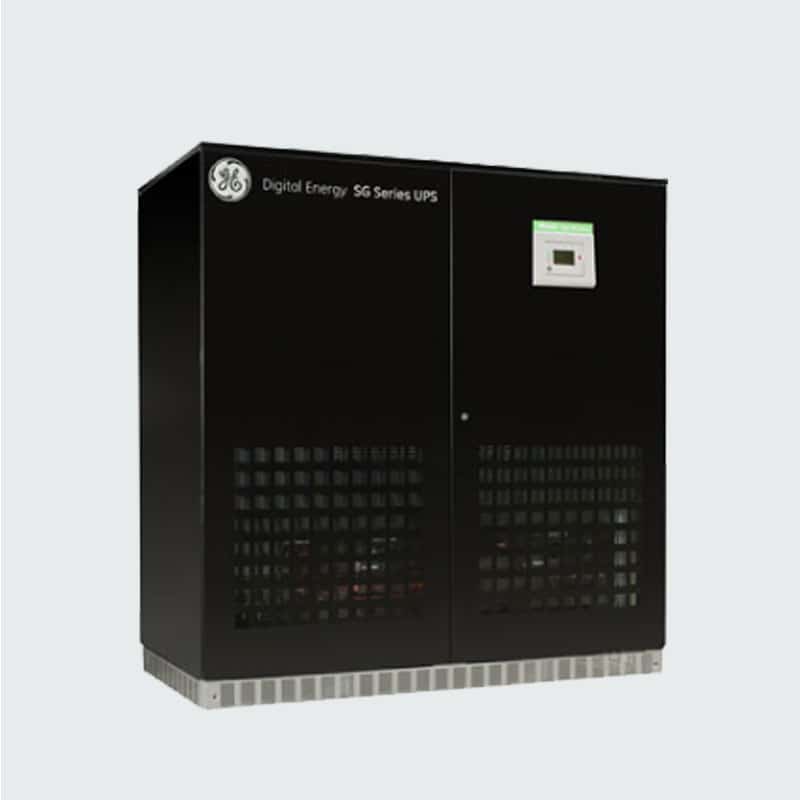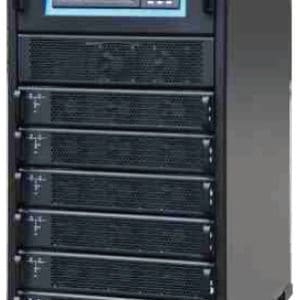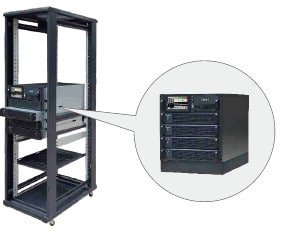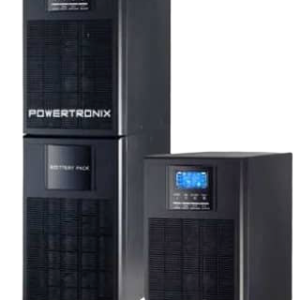Description
Best-in-Class Efficiency with Lower Total Cost of Ownership
Up to 99% operating efficiency with written efficiency guarantees
eBoost operation minimizes efficiency losses providing annual power & cooling savings up to $300k for 5MW data center
eBoost line conditioning & voltage regulation via Bypass Inductor patented design
Innovative product technologies that boost efficiency, reliability and lengthen battery life
Easier Installation and Configuration Flexibility
Top or bottom cable access
Matching battery and maintenance bypass cabinet for easy configuration
Front Maintainability Design reduces mean time to repair (MTTR)
Scalable Solution
Scalable Solution
Redundant Parallel Architecture (RPA) provides reliability, redundancy and scalability
Parallel up to 6 UPS Modules
Long history of experience with Redundant Parallel Architecture (RPA) which increases system reliability by eliminating single point of failures
High Efficiency
Energy Efficiency is Our Focus
The GE SG Series is one of the most energy efficient double-conversion UPS with output transformer topology in the industry, and provides world-class energy efficiency across the operating load range.
GE’s UPS performance is optimized at 50-75% load operation, as this is the most common operating range. The optimization of the SG Series includes selecting all major power chain components based on maximizing the component efficiency at part load conditions. See the Technical Specifications tab for efficiencies of the different SG UPS models.
Ultra-High Efficiency Mode
What is eBoost**?
e = high efficiency up to 99%
Boost = fast transfer to inverter < 2ms
eBoost
Energy consumption is a critical issue for IT organizations as their datacenter energy demands continue to grow. Their goal is to reduce cost and keep the datacenter running. IT organizations can reduce energy consumption costs & system reliability with GE’s eBoost technology.
Technology Features
Up to 99% UPS efficiency
Compliant to ITI (CBEMA) curve during transient events
Patented power electronics and magnetics ensures less than 2ms transfer time to inverter
Patented power conditioning/filtering design via bypass inductor and output transformer/capacitor while in eBoost mode
Battery trickle charge in eBoost operating mode
Up to 4 MW UPS capacity using paralleled modules
eBoost Savings
eBoost operation provides considerable energy life cycle cost savings ranging from $0.5MM to $7MM**. Savings are dependent upon load, power costs and life cycle duration (years).
* Assumptions:
Power Cost = $0.10/kw-hr
Operating Hrs/Year = 8.760
Confirmation = S+S operating at 50% of capacity
High Performance
Input Performance
Robust Rectifier for Wide Input Range
The wide AC input voltage and frequency window avoids unnecessary battery discharge even when operating from an unstable AC source (i.e. diesel generator).
Programmable Soft Start
Allows the rectifier to ramp up in a programmable time period (0-30 seconds) eliminating in-rush current. This feature reduces the need of oversizing the input power system (gensets, feeder cables, and overcurrent devices).
Smart Input Filters, low THDi
GE offers an optional internal input filter with the SG Series UPS. The “smart” filter has a programmable feature that allows the filter to be switched off during start-up and low load conditions, preventing leading power factor (PF). THDi in the 500-750KVA models is less 5%.
THDi in the 50-400 KVA models is less than 7%.
Generator Compatibility
User-programmable features such as slew rate, phase angle rate-of-change and voltage rate-of-change allow the UPS to quickly sync to a genset during emergency back-up. GE’s optional input filter also has user-programmable features ensuring quick and continuous synchronization to generator voltage.
Output Performance
Total Harmonic Distortion (THD)
A distorted output voltage waveform affects the proper function of the load’s equipment. The SG Series has very low output voltage THD, even with connected 100% unbalanced or 100% non-linear loads.
Transient Response
With the use of SVM and the ZigZag transformer, the GE UPS can react very quickly to zero-100% step loads (within 1/3 cycle). This reduces the need to oversize the UPS for severe pulse-load applications.
Overload Capabilities
The SG Series UPS has a robust inverter capable of delivering 150% overload for 60 seconds.
Phase Load Imbalance
The UPS Output ZigZag transformer, via its inherent characteristics and windings configuration, provides excellent voltage regulation against phase-to-neutral (Ph-N) load imbalances.
Parallel Architecture
Redundant Parallel Architecture™ (RPA) System Configuration
GE provides RPA, a unique technology that can parallel UPS modules with true redundancy by eliminating any single point of failure. RPA provides a scalable paralleling technique that reduces operating footprint and increases system reliability by eliminating the need for external paralleling equipment and cabinets (centralized bypass and master control).
One of the UPS modules in the system intelligently takes the leadership role, while the other UPS modules have access to all control parameters. If one UPS fails to operate, the load is automatically redistributed among the others. If the lead UPS fails to operate, then another UPS automatically takes on the leadership role. GE’s RPA technology is implemented by distributing the control electronics within each UPS module in the system.
RPA System Advantages
No Single Points of Failure
Scalable and Modular
Redundant Communication
Distributed Control Logic
Online Maintenance
Sequential Soft Start
Smaller Footprint





Reviews
There are no reviews yet.